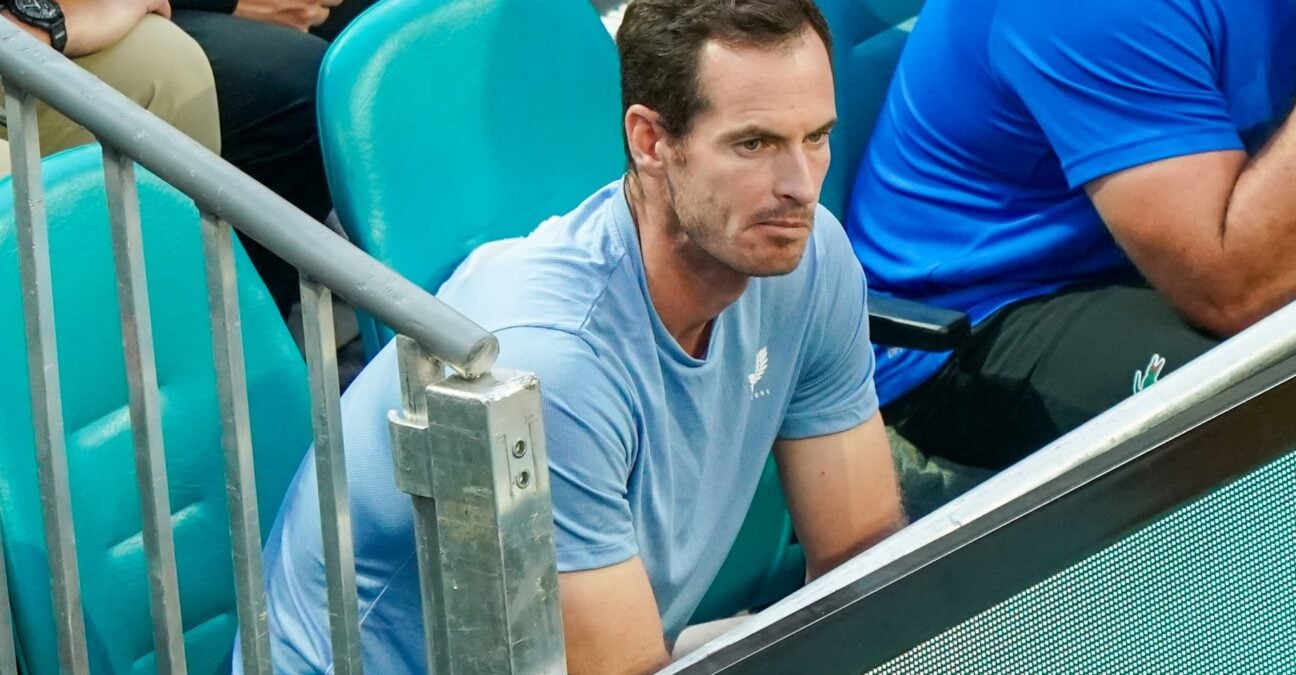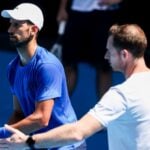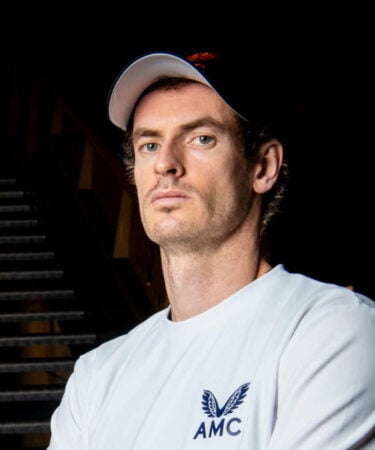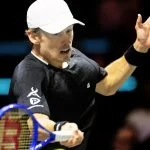Andy Murray on missing the one-week Masters 1000s, and reminding players: “You always have the choice not to play.”
In an interview at the Madrid Masters, the former world No 1 said players should remember they can control their own schedule
 Andy Murray 2025 (Zuma/Psnewz)
Andy Murray 2025 (Zuma/Psnewz)
Coach Andy Murray won’t talk about his work with Novak Djokovic right now. But the former world No 1 was fine talking about the challenges players face now in going through that long stretch between Indian Wells and Roland-Garros with an intact body. We caught up with him in Madrid after Djokovic’s shock loss to Matteo Arnaldi (6-3, 6-4).
For nearly two decades, we saw Rafael Nadal sweeping the entire clay season, more often than not. We also saw Djokovic, Roger Federer, an Murray going through that stretch with a lot of success, very few early losses, and very few injuries. Yet, in Madrid this year, Carlos Alcaraz had to withdraw due to an injury he sustained in Barcelona after winning in Monte Carlo. It was the first time in his career he had to try to go deep in Monaco and then to keep going. He broke (again). Holger Rune, winner in Barcelona, retired (again) in Madrid because of a knee injury in his first match.
“I think the other way was much better“
So, the question is: Is it time to stop trying to emulate the Big 4 era and accept that this scheduling is unsustainable nowadays? Murray thinks that the Tour expanding the Masters 1000 events answered that question.
“Well, I think just because of the longer events now, it’s harder to do that,” he said. “Sometimes, before, if you played in Rome and Madrid and you were seeded, you had a bye in those events, and so you could play your first match on Wednesday, so you could arrive on, let’s say the Saturday of Madrid, know that you would have four days of practice and within 16 days, you’ve finished two events, whereas now there’s nothing like that. So it’s changed, I think, in that respect, and I think the other way was much better.”
Murray is not the only player regretting the good old time of the one-week Masters 1000, as it’s been a regular feeling on the Tour since last year. He points out two areas that are especially missed now by both fans and players: the quality of the show and the chance of recovery.
“The one-week events were really good. You had great quality matches every single day; you knew exactly who was going to be playing when, and, yes, it was demanding, and it was hard but… They also changed some of the rules. For example, Alcaraz won on Sunday in Monte Carlo, and beforehand, you could play next week’s event on Wednesday, but now it’s Tuesday. So you get less rest in that situation. So I preferred how it was before because it probably allowed you to play more matches in a condensed period, but then you had more time to rest and recover, whereas now the rest and recovery happens at tournaments.”
“That’s not the normal rest physically and mentally”
And for the very experienced Murray, it’s simply impossible to rest and recover while still being in the tournament.
“That’s not the normal rest physically and mentally; it’s not the same because you come into the courts, you practice, and you’re around lots of people. I know it’s nice to be here playing, but it’s a stressful environment when you have lots of people and cameras watching your practices rather than having a quiet environment where you can work on things and practice in peace. It is a bit different.”
Will top players have to make very tough choices in the future? Murray tends to think that, yes, it will be unavoidable to succeed and last. And he also wants to remind them of a concept that seems forgotten by too many: They don’t have to play. He came to that conclusion throughout his career.
“Players have the option not to play if they don’t want to. It’s not like anything really bad happens.”
“I never made decisions based on bonus pool, but it would be more about: Will I get a zero point, or might it affect my ranking?” he said. “This might have been something I would have considered, but then as I got older and when I reflect on it, and also as I’ve said to some coaches who work with younger players: You don’t have to play those events. Everyone says the schedule is very long, which it is. It’s definitely a long season. And now, with the two-week events, it’s quite demanding.
“But you also always have the choice not to play. Yes, you might get a zero point, lose a few ranking points, or not be part of a bonus pool. But that’s a decision, either you’re saying, ‘I don’t want to play,’ or ‘I’m making a decision to play because it’s better for me financially.’ Players have the option not to play if they don’t want to. It’s not like anything really bad happens. It’s not like you get a suspension or you can’t play future events. It’s just a zero pointer on your ranking. It’s not a big deal.”
So does Murray think that we’ll see more and more players starting to wonder about skipping big events?
“Yes, you might start seeing it more,” he said. “Players often complain and say, ‘Oh, the season’s very long, so when I play in Canada and Cincinnati, I’m tired when I get to the US Open.’ Well, then, if you think it would be an advantage not to play Cincinnati and Canada, choose one of the events you don’t want to play and then go into the US Open with an advantage over all of the other players.
“If that’s truly what you believe, that it is better…nowadays, every tournament is just adding days, and it’s like the least creative way of making them more money, I don’t know, really… But also, if it wasn’t making them money, I think they’d find a different way,” he said.
Recently retired, Murray doesn’t have to worry about that himself but Andy Murray, the coach, will still be part of making these tough decisions.













